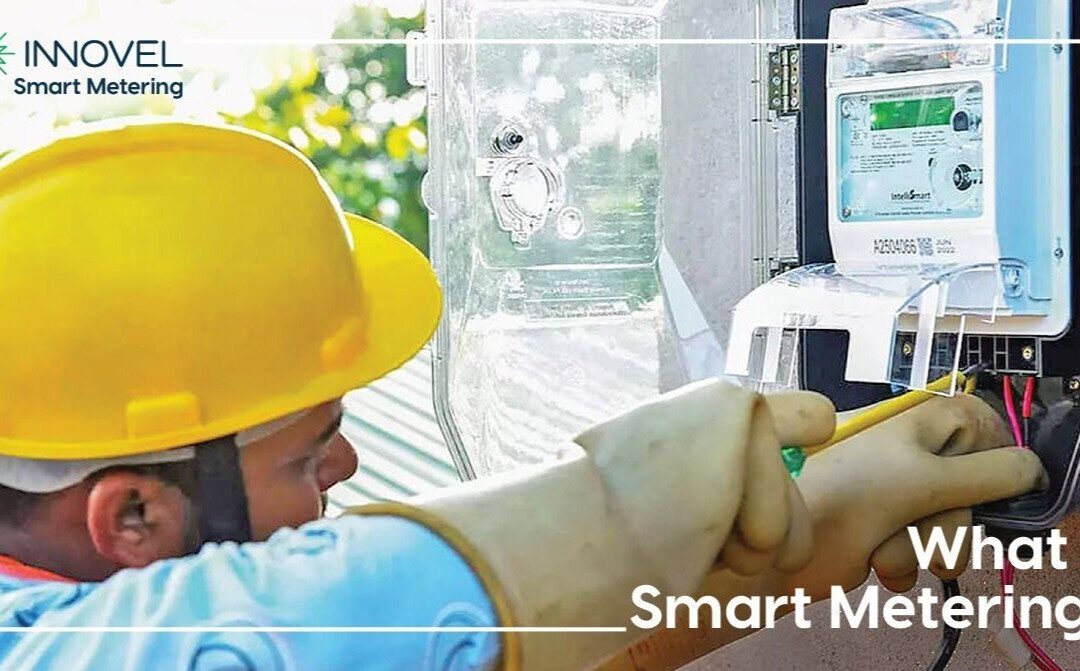Smart metering is a groundbreaking technology that is rapidly transforming the way utilities manage and distribute electricity. It involves the installation of smart meters in homes, businesses and industrial facilities to provide real-time monitoring and reporting of energy usage. Unlike traditional meters, smart meters offer a wealth of data that both utility providers and consumers can leverage to optimize usage, reduce costs, and improve efficiency.
How Smart Metering Works
At its core, a smart meter is a digital device that continuously records the amount of electricity consumed and communicates this data to the utility company via a secure network. Unlike older systems where utility workers had to manually read meters, smart meters automate this process, sending data in real-time to centralized data management systems.
Key Components:
- Smart Meters: Record precise, real-time consumption data.
- Communication Networks: Use technologies like RF mesh or cellular networks to transmit data.
- Data Management Systems: Store, process, and analyze the data for actionable insights.
These components work together within an Advanced Metering Infrastructure (AMI), which integrates the meters, communication technology, and data analytics platforms. This infrastructure allows utilities to not only measure consumption but also detect anomalies like outages and tampering, improving overall system reliability.
Benefits of Smart Metering
- Accurate Billing and Elimination of Estimates Smart meters eliminate the need for estimated billing by providing accurate, real-time data on energy consumption. This improves transparency between utility providers and consumers, fostering trust and customer satisfaction.
- Energy Management for Consumers One of the most significant advantages of smart meters is that they provide consumers with detailed information on their energy use. With access to real-time data, consumers can track their consumption patterns and make adjustments to reduce energy costs. For example, businesses can shift their energy-intensive processes to off-peak hours when electricity rates are lower.
- Enhanced Grid Management for Utility Providers Smart meters enable utilities to manage their grids more efficiently. By collecting real-time data on consumption patterns, utilities can optimize energy distribution, reduce peak demand pressures, and prevent costly upgrades to infrastructure. Additionally, smart meters provide valuable insights that can be used to integrate renewable energy sources into the grid more effectively.
- Reduced Operational Costs By automating the process of meter reading, utilities can significantly reduce their operational costs. This not only saves labor costs but also allows for quicker detection and resolution of issues like outages, reducing downtime for consumers.
Why Smart Metering Is Gaining Traction.
Smart metering is becoming popular across the globe, particularly in regions where energy efficiency is a high priority. Governments and regulatory bodies are increasingly mandating the adoption of smart meters as part of broader sustainability and efficiency initiatives. For instance, smart meters play a crucial role in supporting demand response programs, where utilities incentivize consumers to reduce energy consumption during peak times.
Moreover, the integration of smart meters with other IoT devices is expanding the applications of smart metering. For example, businesses can integrate smart meters with building management systems to automate energy-saving measures, such as adjusting heating or cooling systems based on real-time data.
Real-World Applications
- Commercial and Industrial Sectors: Businesses benefit from granular data on energy usage, helping them implement energy-saving strategies and achieve significant cost reductions. Some companies have seen savings in operational and maintenance costs, along with additional benefits like eligibility for rebates and sustainability certifications.
- Residential Consumers: Homeowners can monitor their energy use via smartphone apps, making it easier to control energy consumption and reduce bills.
- Utilitiesy Providers: Utilities can identify outages and other issues more quickly, leading to faster response times and improved service reliability.
Addressing Concerns
While the benefits of smart metering are significant, there are also some concerns to address, particularly around security and privacy. Because smart meters operate on connected networks, they are vulnerable to cyberattacks. To mitigate these risks, utility companies implement encryption and other security measures to protect the data.
There are also concerns about the cost of implementing smart meters, particularly in regions where utilities may not subsidize the installation. However, the long-term savings in operational costs and improved efficiency often justify the initial investment.
The Future of Smart Metering
Smart metering is not just about collecting data; it’s about transforming the way we use energy. As more utilities adopt this technology, the benefits will continue to grow. In the future, smart meters could play a vital role in supporting the integration of renewable energy sources, such as solar and wind, into the grid, helping us achieve a more sustainable energy future.
For Innovel Energy, smart metering aligns with our mission to drive innovation in energy management. Our smart meter installation and integration services help businesses and utilities take advantage of this technology to optimize their energy usage, reduce costs, and improve operational efficiency.
By adopting smart meters, we move one step closer to creating a greener, more efficient future for energy consumption.

